September 21, 2021
For most of my life, I’ve been a die-hard sleep fiend—or as my wife likes to tease me about, a “sleep princess.”
I’ve long attributed my ability to create, produce and focus on the daily to an extreme, almost OCD-like focus on deep work, and that's pretty hard to achieve unless I'm getting 7-8 hours of quality sleep every night, or 6-7 hours with a nap thrown in later (usually a 20-60 minute midday nap, which I'll tell you more about later in this article).
To achieve this level of slumber success, I’ve developed sleep routines involving everything from nutritional strategies to supplements, essential oils, sleep masks, precise temperature adjustments, and a plethora of other devices that circulate cold water under my sheets, emit “grounding” frequencies, and gently lull my brain into a deep sleep using cranial electrotherapy (plus, many other new “sleep biohacks” I covered in a recent panel with Dr. Shah of Next Health).
I’ve also written and talked about sleep ad nauseam: What happens when you don’t get enough; how to sleep better using exercise, food, and supplements; tips for napping; how to combat jet lag; how to increase your deep sleep; and much, much more.
So yes, I take sleep very, very seriously—and for good reason. Getting enough quality sleep each night is absolutely essential for your health, and there’s really no way around it.
Or is there?
To be honest, as a busy father, husband, coach, author, podcaster, investor, speaker, exercise enthusiast, and someone who’s simply trying to squeeze the most juice out of every day, I do admit that I often wonder: Is there a way to sleep less and mitigate the damage?
Now, I don’t mean this in a masochistic way, in terms of waking up at the crack of dawn, after a few measly hours of sleep, and simply sucking it up because, as the saying goes, “I can sleep when I’m dead.” However, I can’t help but wonder if there’s some compound or trick that could somehow decrease my body’s need for sleep, allowing me to sleep, say, 5-6 hours per night and still wake up feeling rested, without causing tons of biological damage that will unquestionably shorten my lifespan.
Turns out, the answer might be a resounding “yes.” There is indeed a completely natural, cheap, highly-researched compound that shows promise in terms of being able to help you sleep less without paying for it later. And it’s so common and well-known, that you might even have some in your supplement cupboard right this minute.
In fact, though I've been using this particular compounds for the past twenty years for sports performance, I’ve now lately – based on new research on this handy molecule – also been using it as a “hack” to help me wake up earlier, crush the workday, have more time to spend with my family, and still feel fully energized, rested, and at my peak. Not only that, it could be hugely beneficial for people that simply can’t get 8-9 hours of sleep a night—either because of a hectic work schedule, having a newborn, travel, or dealing with sleep issues like insomnia.
So whether you’re a busy CEO, new parent, or simply in a season of life where sleep is taking a backseat, I want to tell you about this inexpensive compound that may reduce your body’s need for sleep, along with other research-backed ways to mitigate the side effects of sleep deprivation.
Why We Get Sleepy
In order to understand how and why this compound works, it helps to know the biochemistry of sleepiness (also known as “sleep drive”).
During the day, our bodies are constantly battling between our “wake drive” and “sleep drive.”
Wake drive is highest in the morning, and stimulators like light, caffeine, movement, food, etc. can all postpone its inevitable decrease.
As the day goes on, however, our sleep drive increases, and ultimately takes over wake drive as bedtime approaches. According to a research framework called the “two-process model of sleep regulation,” the main factors that determine sleep drive are 1) circadian rhythm and 2) extracellular adenosine.
Let's delve into both…
Sleep Driver 1: Circadian Rhythm
The first obvious factor in sleep drive is our circadian rhythm: the internal 24-hour biological clock that determines a number of physiological processes.
Where you are in this cycle will typically determine how sleepy you are. Closer to your normal bedtime = higher sleep drive. Makes sense, right?
However, everyone’s circadian rhythm can vary slightly, which you probably know if you’ve heard of “early birds” and “night owls.” In fact, according to Dr. Michael Breus, there are four main types of circadian rhythms, or as he calls them, chronotypes: Lions, Wolves, Bears, and Dolphins. Bears, which make up the majority of the population, will typically get sleepy around 11 p.m. and wake up around 7 a.m. Wolves, on the other hand, may not feel tired until closer to midnight.
Now, I am not going to get into the science of circadian rhythms here (see the links below to learn more), but the main takeaway is that if you’re sleep-deprived, or trying to adjust your circadian rhythm to get a better night’s sleep, there appear to be a few factors that, when adjusted, can shift your sleep-wake cycle (to a degree):
- Light
- Movement
- Food timing
- Caffeine intake
Later in this article, I’ll cover how you can use these factors to help mitigate the effects of sleep deprivation.
If you want to learn more about circadian rhythms, you can check out the following articles and podcasts:
- Q&A 381: The Post-Workout Nutrition Myth, Your Personal Circadian Rhythm, Hot Vs. Cold For Recovery & More!
- The “Re-Timer” Effect: How To Re-Time Your Circadian Rhythms If You Wake Up Too Early Or Stay Up Too Late.
- The Secrets Of Hugh Jackman’s Wolverine Diet, Does A Morning Cup Of Coffee “Break Your Fast”, The Circadian Clock & Much More!
So, circadian rhythm is one of the drivers of why we get sleepy. The second factor in sleep drive is adenosine.
Sleep Driver 2: Extracellular Adenosine
Researchers often use a term called “sleep homeostasis” when talking about sleepiness, which basically accounts for the ratio between the amount of time you’ve been awake and your sleep drive.
Generally, the longer you’ve been awake, the higher your sleep drive (with some caveats in terms of circadian rhythm, of course).
This is why someone who gets up at 4 a.m. is going to be more likely to want a nap at 2 p.m. than someone who wakes at 7 a.m. Pretty intuitive, right? But things get really interesting when you dive into the actual mechanisms behind sleep homeostasis. Adenosine triphosphate (ATP) is an organic compound that provides energy to drive many processes in living cells, such as muscle contraction, nerve impulse propagation, condensate dissolution, and chemical synthesis. Now, what happens is that during wakefulness, your brain's energy reserves (ATP) get turned over pretty quickly. As more and more ATP is produced in your brain throughout the day, two things happen as a result, making you feel sleepier:
- ATP gets broken down into adenosine monophosphate (AMP)—which plays an important role in many cellular metabolic processes and degrades to adenosine. This adenosine accumulates outside of brain cells.
- Adenosine then activates sleep-promoting neurons (GABAergic) and also inhibits wake-promoting (cholinergic) neurons in the front of the brain.
So, as the day goes on, more adenosine accumulates in the brain, and the more tired you become. The more tired you are, the greater your sleep drive, and the longer you sleep (generally). All that to say, adenosine accumulation plays a big role in how sleepy you get during the day and how much you sleep at night.
More time awake → More ATP turnover → More adenosine → More sleepiness → More sleep
(In fact, blocking adenosine in the brain is exactly why caffeine can prevent you from getting sleepy—and why, if you want a good night’s sleep, you should probably avoid it in the afternoon, depending on your personal caffeine metabolism.)
Now, there just so happens to be one well-known compound that can increase ATP stores and counteract the breakdown of ATP into adenosine, therefore naturally preventing your body from sleeping as long.
Have you guessed yet?
That’s right, it’s creatine, baby.
Creatine: The Peptide That Can Help You Sleep Less (And Potentially Mitigate The Downsides)
Creatine and ATP go hand-in-hand.
Gym rats, athletes, and human performance optimizers alike have been using creatine supplementation for decades to increase energy levels, muscular strength, power output, and cognitive function (plus a whole host of other lesser-known benefits, which I cover in this article). It was actually one of the only supplements I used back in my bodybuilding days because it was so easy to afford, so efficacious, and as a dirt-poor college student, it was my top pick to allow me to build muscle and still be able to afford chicken and broccoli and tuna fish (my other three “secrets” that I'd surely go back and replace with bone broth, bone marrow, steaks, colostrum, olive oil and the like if I ever went back to the nutritional drawing board for putting slabs of muscle on the body, but that's a story for another day)…
Anyways, here's the problem: one of the most common supposed complaints of creatine users is also…bad sleep. In fact, you can find hundreds of comments just like this subreddit all over the interwebs:
I personally agree with this fella: nothing beats great sleep. But it begs the question, is creatine supplementation actually making people sleep worse? Or just sleep less? That's what I want to get into next.
How Creatine Affects Sleep: Alterations In Sleep Homeostasis
Creatine works by increasing your body’s stores of the “P” in ATP: phosphocreatine.
Phosphocreatine is a creatine molecule that serves as a rapidly mobilizable reserve of high-energy phosphates in skeletal muscle, myocardium, and the brain.
When stores of phosphocreatine in your brain go up, the breakdown of ATP into ADP is slowed, and as a result, you get lower concentrations of accumulating adenosine (which, remember, is one of the factors that makes you sleepy).
In other words, creatine alters sleep homeostasis by keeping your brain’s scales tipped towards “wake drive” instead of “sleep drive” as the day goes on. This also means, come nighttime, your sleep intensity won’t be as high, and you probably won’t feel like you need to sleep as long. The graphic below illustrates the difference in processes between a normal diet and a diet with creatine supplementation.
Source: Creatine supplementation reduces sleep need and homeostatic sleep pressure in rats
Creatine’s effects on sleep were illustrated in a recent study in the Journal of Sleep Research, in which mice were given creatine for four weeks. The results of the study showed that the creatine group experienced:
- Reductions in total sleep time
- Decreased sleep drive, even after sleep deprivation
- Lower concentrations of extracellular adenosine in the brain
- Sleeping less during “light hours” (which might be equivalent to waking up earlier in the morning)
- Changes in sleep structure, including shorter sleep cycles and less non-REM (deep sleep)
(*Interesting side note: Based on this study, creatine supplementation might also be able to increase your REM sleep levels, a strategy that I discussed in a recent podcast.)
So basically, creatine supplementation helped the mice sleep less, wake up “earlier,” and not feel exhausted despite being sleep-deprived.
If you’re anything like me, you’re probably thinking to yourself, “OK…sure, creatine might help me function better on less sleep, but what damage am I causing by sacrificing my precious sleep?”
This is where it gets really interesting—and why I personally decided to start experimenting with using creatine to occasionally help me to sleep less.
Creatine Mitigates The Effects Of Sleep Deprivation
The negative effects of long-term sleep deprivation are no joke.
So much so, in fact, that I’ve written an entire article about what can happen to you if you don’t get enough sleep here.
Basically, people who consistently skimp out on sleep run the risk of:
- Higher risk of obesity
- Increased inflammation
- Loss of skeletal muscle mass
- Decreases in athletic performance
- Negative effects on the neuroendocrine system
- Appetite dysregulation and poor glucose metabolism
- Decreased cognitive performance, slower thinking, and worse memory
What’s worse, even one night of bad sleep can do serious biological damage. So yeah, not getting enough sleep is definitely not good for your health. However, what’s so promising and almost too-good-to-be-true about creatine is that it appears to potentially mitigate many of these downsides of sleep deprivation—probably because it’s so fundamental to energy production.
One clinical trial showed that creatine prevented the negative effects of sleep deprivation on cognitive performance, psychomotor performance, and mood. Another study showed that when sleep-deprived athletes supplemented with creatine, they didn’t experience a decline in athletic performance, and were able to perform just as well on tests as when rested.
Creatine supplementation was also shown to maintain executive functioning, even after 36 hours of sleep deprivation. In addition, we know that creatine is incredibly beneficial for staving off muscle loss, improving athletic performance, preventing fatigue, lowering inflammation markers, increasing testosterone levels, and more. In other words, creatine has been shown to counteract just about every negative side effect that comes with not enough sleep. Pretty cool, huh?
So, if you had a bad night of sleep, you’re chronically sleep deprived, or, like me, simply in a season of life where you have no choice but to wake up earlier than normal in order to check everything off your ridiculously long to-do list, creatine supplementation appears to be incredibly effective at not only decreasing your body’s need to sleep longer but also mitigating the harmful effects of sleep deprivation.
How To Take Creatine For Reducing Sleep And Buffering Sleep Deprivation
Supplementing with creatine for sleep is not much different than taking it for any other purpose…
…except perhaps when it comes to timing.
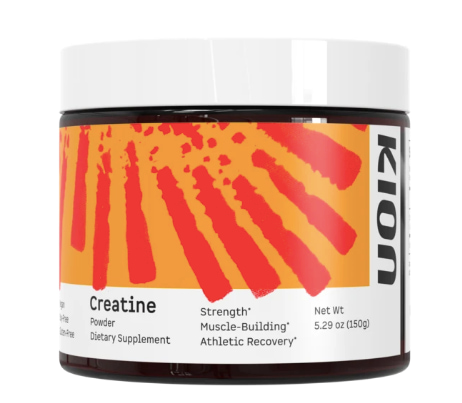 First of all, you’ll want to take 5 grams daily of creatine monohydrate (although one quite recent research study shows that particularly in seniors for muscle maintenance or muscle growth, it can be pushed as high as nearly 10 grams). Not only is it incredibly cost-effective, but creatine monohydrate is also the most researched and bioavailable form of creatine. 5 grams appears to be the sweet spot for getting most of the benefits. (My preferred brand is Kion Creatine, which uses the purest form of creatine monohydrate, Creapure®.)
First of all, you’ll want to take 5 grams daily of creatine monohydrate (although one quite recent research study shows that particularly in seniors for muscle maintenance or muscle growth, it can be pushed as high as nearly 10 grams). Not only is it incredibly cost-effective, but creatine monohydrate is also the most researched and bioavailable form of creatine. 5 grams appears to be the sweet spot for getting most of the benefits. (My preferred brand is Kion Creatine, which uses the purest form of creatine monohydrate, Creapure®.)
I'm not a fan of traditional creatine “loading”, in which one might take up to 20 grams creatine for anywhere from a week to two weeks prior to tapering down to 5 grams per day. I'm not convinced it's necessary based on the research I've seen, and furthermore, that loading phase is the main reason some people get excess water retention or a “bloated” look with massive creatine doses.
Now, when it comes to timing, there isn’t much research on when to take creatine supplementation for mitigating sleep deprivation. However, here’s my hypothesis:
If adenosine is accumulating and ATP is turning over as the day progresses, then I would guess that taking two half-doses—2.5 grams in the morning and 2.5 grams in the early afternoon—might be best for a “slow bleed” approach to maintain energy levels throughout the day.
If that’s too complicated though (or if you’re kinda lazy like me) simply taking 5 grams first thing in the morning with coffee or breakfast should do the trick. In any case, I would avoid taking it close to bedtime, even if you exercise in the evening, as this could make it harder for you to fall asleep.
Now, while the benefits of creatine supplementation are indeed impressive, I’m certainly not condoning using it as an excuse to neglect sleep for the rest of your life. In lieu of more clinical research, that would be highly irresponsible of me, wouldn’t it?
Rather, use creatine responsibly to mitigate the damage of a poor night’s sleep. Or, as I am, you can utilize it on the occasion that you simply need to wake up earlier to get more done during the day, and still want to be at your physical and cognitive peak. In other words: I hope you simply use it as a strategic tool, not as a replacement for a good night's sleep.
If you’re creatine-curious and want to know more about the benefits of this potent peptide, outside of its effects on sleep, check out “The Dirt Cheap, Widely Available Natural Molecule That Is One Of The Most Well-Researched Supplements For Cognition, Muscle Repair, Endurance, Testosterone & Much More.”
Six Strategies To Mitigate Sleep Deprivation Damage
Of course, creatine supplementation is not the only way to buffer against occasional bouts of sleep deprivation.
Here are six other simple, straightforward tactics that will help you feel your best if you find yourself short on sleep.
1. Exercise (Ideally Outside)
One of the best ways to reset your internal clock after crummy sleep (which is often related to a dysregulated circadian rhythm) is to get outside, catch some rays, and do some light aerobic exercise.
Research suggests that moderate-intensity aerobic exercise prior to breakfast is highly beneficial for enhancing sleep.
This activity won’t amplify high cortisol levels in the morning, won’t spike your appetite so much that you face-feed the rest of the morning, and will leave enough glycogen (basically, your energy storage) in the tank for a harder workout later in the day. If you can’t make that happen, intense ten-minute bouts done every two hours during a sleep-deprived day can also partially alleviate sleepiness during periods of sleep restriction.
In other words, if you’re sleep-deprived, do:
- A light aerobic session (20-45 min) before breakfast, such as a walk outside in the sunshine; or
- Short-and-fast sessions (10 min) every two hours, such as a quick series of kettlebell complexes or a few rounds on an Assault AirBike
2. Supplement
Supplements can help mitigate the harmful consequences of sleep deprivation…
… including the negative effects on your immune system, dysregulated blood sugar, increased cortisol, increased blood pressure, the depletion of essential vitamins and minerals, and more.
Here are just a few choice supplements that can buffer some of these results after a bad night’s sleep:
- Activated charcoal (1000 mg) to bind and flush toxins
- Oregano oil (4-5 drops) to support the immune system
- Curcumin (1000 mg) to lower inflammation
- Magnesium (100 mg) which gets depleted after sleep deprivation and also helps improve sleep the next night
- Tyrosine (150 mg/kg) to support the nervous system, combat stress, and improve cognitive functioning
- Phosphatidylserine (800 mg) to decrease cortisol, lower mental fatigue, and improve mood
- Kion Lean (2 capsules) to buffer blood glucose dysregulation
- NAD+ (100 mg) to boost metabolism, energy, and brain function
3. Don’t Compensate With More Caffeine
After a bad night of sleep, it can be all too easy to reach for that third or fourth cup of coffee.
Don’t do it!
Consuming too much caffeine can reduce the quality of the next night’s sleep, which will make you even more tired the next day, so you end up drinking more caffeine—and it can go on and on in a vicious sleep-deprived cycle.
So try your best to stick to your normal dose of caffeine. One or two 8-ounce cups of caffeinated coffee (before noon) will keep your eyes open without derailing your next night of sleep. Then switch on over to decaf if you're still craving the taste. You’ll also want to pass on quad-shot caramel frappés, and prepare your caffeine wisely. Extra sugar means an extra-hard crash.
4. Meditate
While certainly not a “quick fix,” if sleep is a common problem for you, you might want to consider taking up a meditation practice.
Meditation can help you not only sleep better, but also help your body deal with the stress of sleep deprivation—including reducing cortisol, decreasing stress and anxiety, and improving cognitive function.
One study on Indian army soldiers found that after two months of practicing meditation, the soldiers were able to perform significantly better—mentally and physically—when sleep-deprived compared to those who didn’t meditate. I have written and podcasted plenty on meditation because, in addition to positive effects on sleep and post-bad-sleep functioning, there are a host of health benefits that result. For more, you can read this article and listen to this podcast, both featuring Emily Fletcher, a leading expert in the practice of meditation.
5. Eat Smart
Ever find yourself reaching for a donut when you're exhausted?
Well, that's because your sleep cycle regulates your appetite.
When you’re sleep-deprived, your hunger hormone (leptin) levels will be high and your satiated hormone (ghrelin) levels will be low—which means you’re likely to overeat during the day.
To combat this, eat in a way that helps you achieve a slow, steady burn of energy (in other words, put that donut down, as you'll want to avoid refined carbs and sugar). Protein will be your best friend after a bad night of sleep, as it increases the production of orexin, a hormone that keeps you awake and alert by stimulating neurons to release neurotransmitters that promote alertness, such as dopamine, serotonin, and norepinephrine. In fact, people diagnosed with type 1 narcolepsy have an 85% to 95% reduction in the number of neurons that produce orexin.
6. Rehydrate
Your cells require both water and minerals to maintain the aqueous matrix in which they reside.
In times of stress, such as after a night of poor sleep, optimizing your cellular environment becomes even more important.
When fighting through sleep loss, go out of your way to consume trace mineral drops, trace liquid minerals, quality sea salt (such as Colima sea salt), and plenty of water. This will also help control the raging appetite that sleep deprivation notoriously causes. For a real deep dive (heh) into everything hydration, check out this podcast of mine with one of the world's leading experts on water, Robert Slovak.
To Nap, Or Not To Nap?
That is, indeed, the question—especially after a night of restless sleep.
Do you suffer through the day without a nap, in hopes that you’ll sleep better at night? Or do you take a quick 20-minute “cat nap” to alleviate your fatigue?
The truth is, you can find research to support either approach. Even Matt Walker, the world-renowned sleep expert, has been quoted both demonizing and hailing the afternoon nap. According to a recent article, “Exploring the nap paradox: are midday sleep bouts a friend or foe?”:
“Naps facilitate executive functioning, memory formation, subsequent learning, and emotional processing. Yet, paradoxically, there is also a multitude of studies linking frequent napping with negative outcomes, especially in older populations.”
The authors of the article go on to conclude that for young, healthy individuals, a midday nap appears to be observably beneficial—especially when it comes to reducing sleepiness, improving memory, learning, and emotional processing. In older adults, however, the effects of napping may be more deleterious. So, your napping results may vary, and probably depend on your age, typical sleep schedule, how regularly you nap, as well as when and how long you nap for. Personally, I’m a big fan of the 20-40 minute afternoon siesta—especially when I wake up extra early. It appears to make a huge difference in my afternoon work productivity and quality and ultimately gives me “two separate days” of productivity squeezed into one day.
If you want more tips to conquer your nap, including do’s and don’ts for best results, check out my articles “The Last Resource On Sleep You’ll Ever Need: Ben Greenfield’s Ultimate Guide To Napping, Jet Lag, Sleep Cycles, Insomnia, Sleep Food, Sleep Supplements, Exercise Before Bed & Much, Much More!” and Better Living Through Science: Two Advanced Biohacking Strategies & “Stacks” For Enhancing Sleep & Meditation.
Summary
Type-A, hard-charging, high-achievers have been dreaming of this moment our whole lives: The discovery of a substance that could help us get by on less sleep, mitigate the biological damage, and squeeze more into our waking hours.
Creatine might just be that magic compound.
When it comes to reducing the need for sleep, creatine supplementation appears to:
- Decrease “sleep drive,” even after sleep deprivation
- Lower concentrations of extracellular adenosine in the brain, which is the main factor in how sleepy we get during the day, and how long we sleep at night
- Change sleep structure, including shorter sleep cycles and less non-REM (deep sleep)
- Reduce total time asleep, especially during “light hours” (which could translate to waking up earlier)
Not only that, creatine is well-known to counteract many of the side effects of sleep deprivation, including:
- Preventing fatigue
- Staving off muscle loss
- Boosting testosterone levels
- Lowering inflammatory markers
- Improving cognitive performance and mood
- Helping to maintain executive functioning
- Mitigating declines in athletic performance
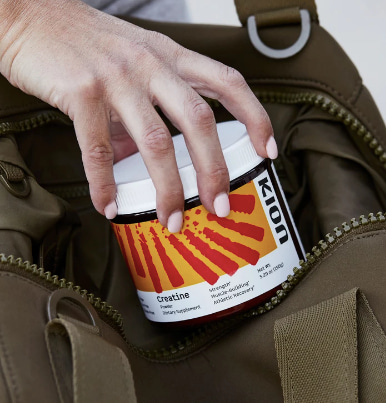 However, before you go tossing back scoops of creatine in order to pull repeated all-nighters, it’s important to note that while creatine is one of the most researched supplements in the world, human studies on creatine supplementation and sleep are currently lacking. So take this with a grain of salt and use creatine responsibly.
However, before you go tossing back scoops of creatine in order to pull repeated all-nighters, it’s important to note that while creatine is one of the most researched supplements in the world, human studies on creatine supplementation and sleep are currently lacking. So take this with a grain of salt and use creatine responsibly.
The brand of creatine supplementation that I personally trust and use is Kion Creatine, because it's made with 100% Creapure®, the purest creatine monohydrate available. Creapure® has a 95% absorption rate, meaning that you're going to get the “most for your money” with Kion. You can read plenty more of my thoughts about Kion Creatine, and creatine in general, in this comprehensive creatine article.
Getting enough quality sleep is still incredibly important for overall health, and I firmly believe it should continue to be a focus if you want to live a long, healthy life. But, if you find yourself in a state of sleep deprivation, or a season of less sleep—as many of us will at some point in our lives—knowing there’s an inexpensive, natural, and safe tool that can help is incredibly useful.
What’s your experience with sleep and creatine supplementation? Does it affect your sleep or energy? Let me know in the comments below, and any other “stacks” you've found useful to combine with creatine (my own “muscle-building” stack of late is 10 g Aminos + 2 scoops Colostrum + 5 g Creatine)!

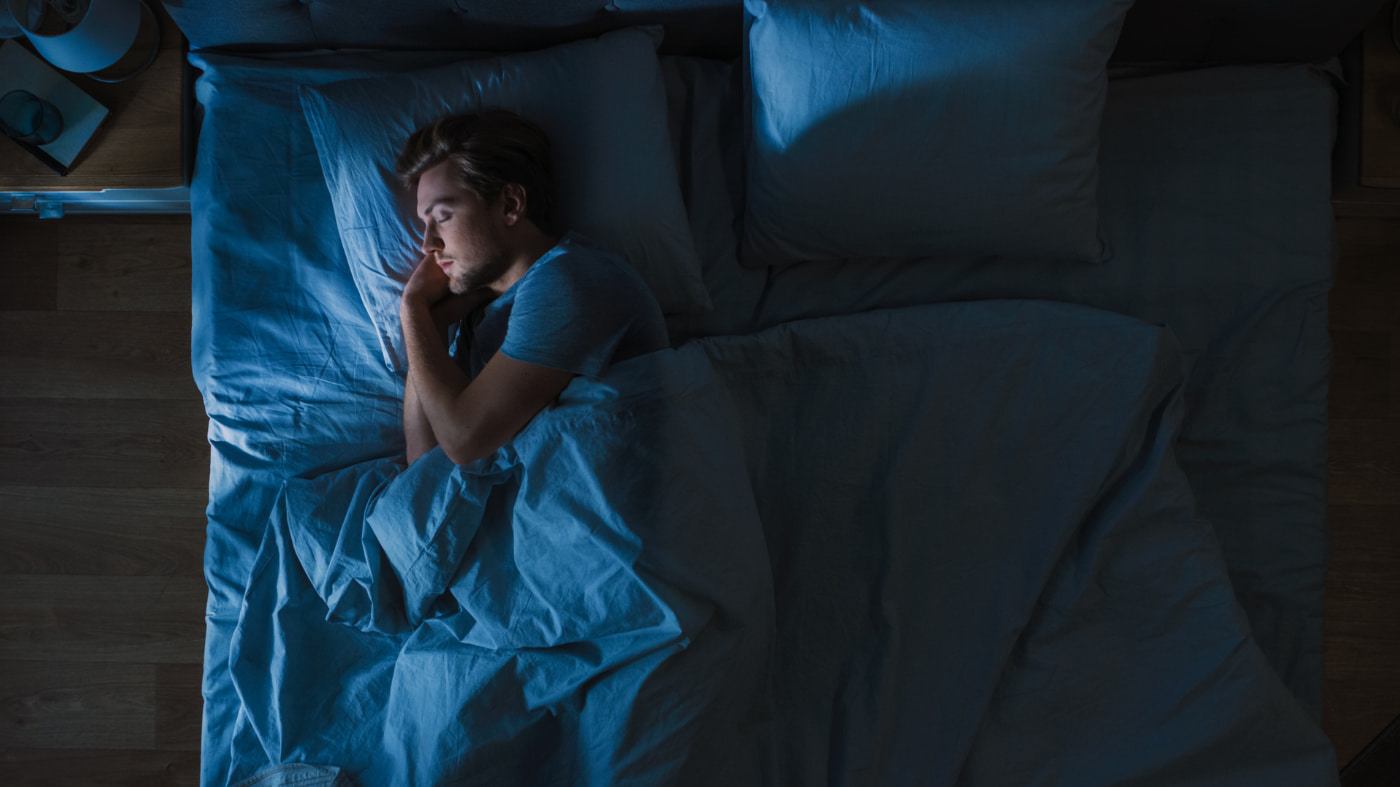


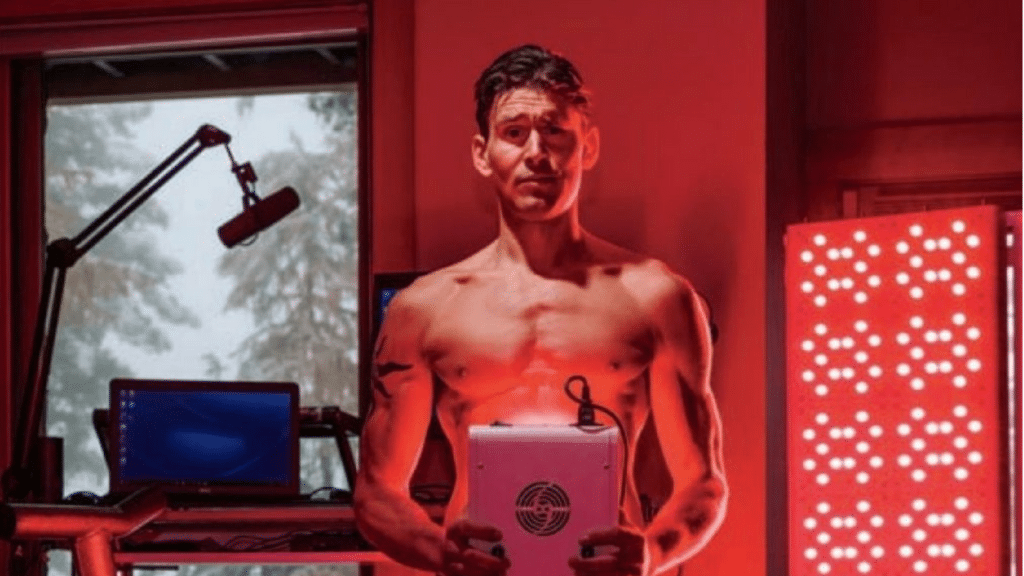

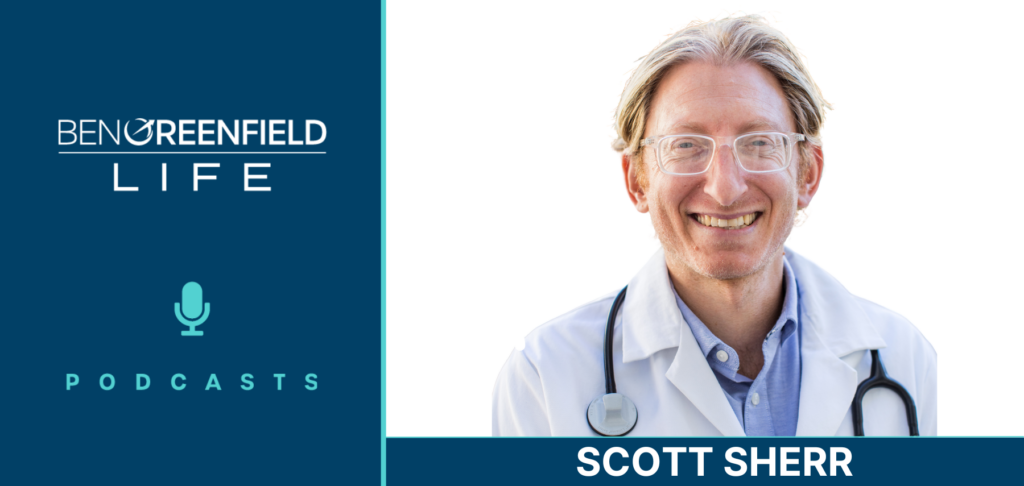
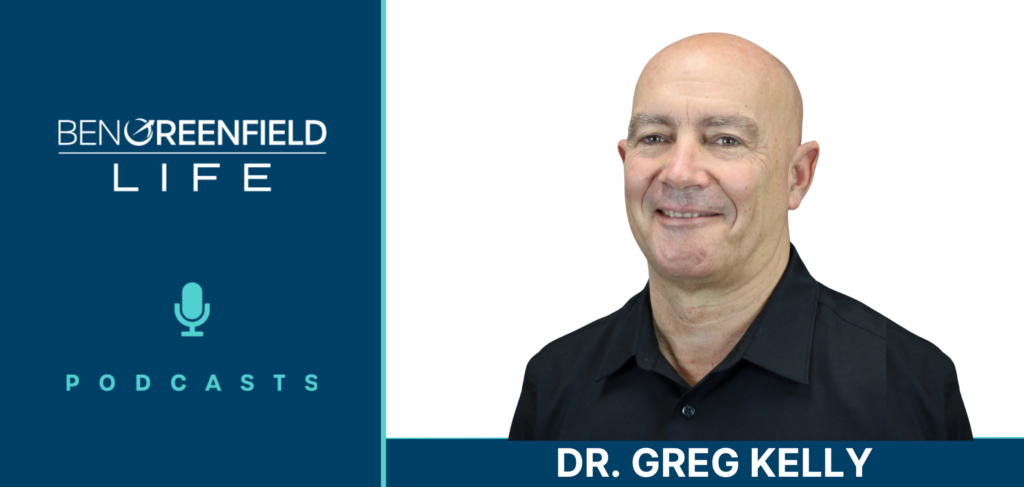

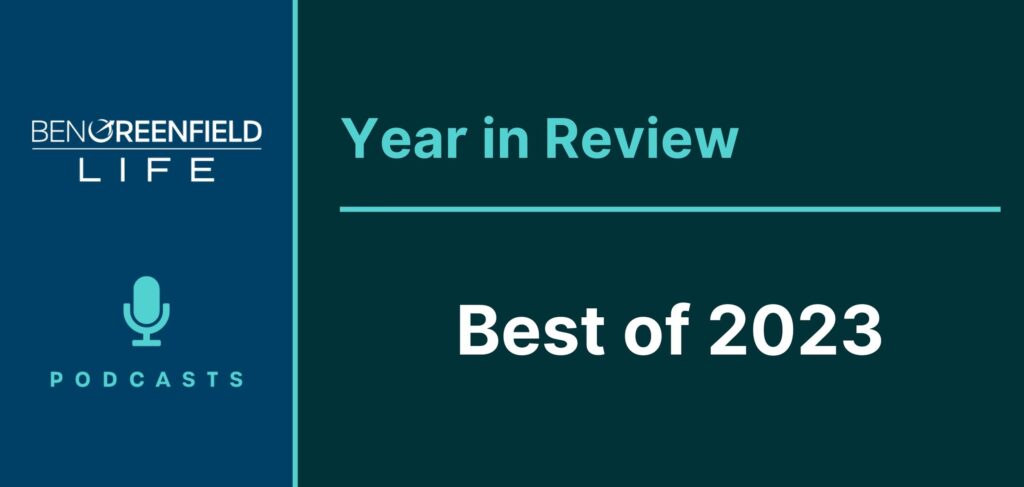

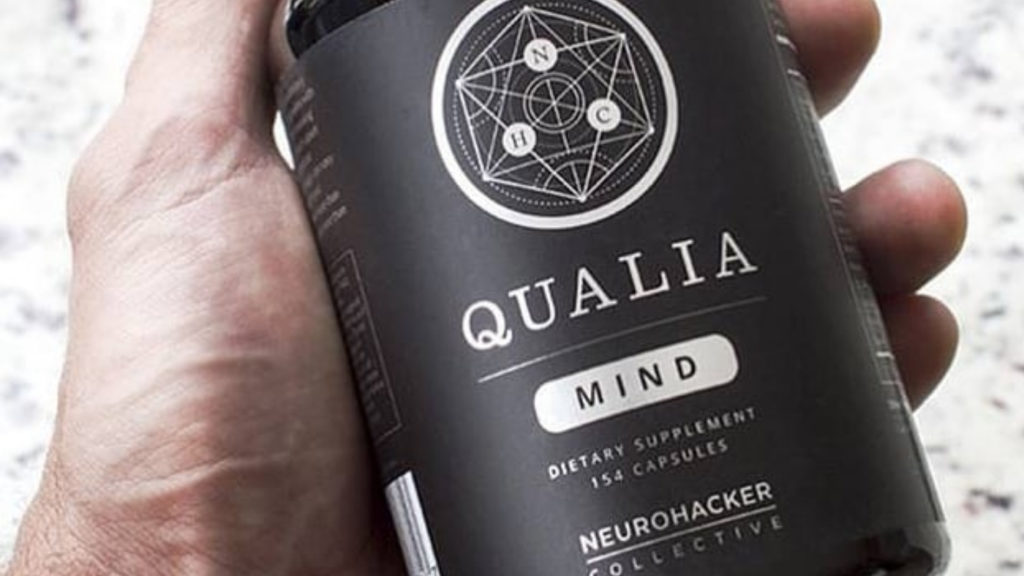



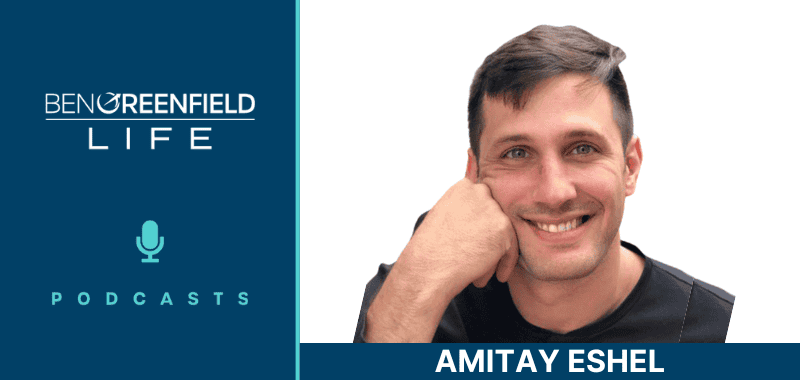
Hi Ben,
I’ve had sleep issues for a long time. I’ve read as many books about sleep as I could get my hands on, and have have researched countless articles by sleep experts on the web. Most of the “sleep experts” are in agreement, that nap taking is not a good idea for people that have severe sleep issues. It’s because you disrupt your circatian rhythm, which makes it worse. Even if you get 2 hours of sleep and are absolutely exhausted, like a walking zombie (which has happened to me many times) you are encouraged to force yourself to stay awake all the way until your bed time, which optimally should be the same time every night. And also to try to get up at the same time every morning, without ever hitting the snooze. Sleep hygiene is key as well. Like you said, avoiding caffeine is important, but also staying off of the computer and shutting of the television an hour before bed helps as well. I’m always reluctant to try a different supplement that might cause an issue with sleep. I use to take creatine about 20 years ago, but that was long before I developed sleep issues.
much obliged to you ben you help such countless individuals. you help me genuinely intellectually profoundly so thus I can help other people. extraordinary post. have an incredible day.
Great article – one question.
Understand caffeine impacts the absorption of creatine, so assume if you take in the morning, it should not be directly w/ coffee
Thanks!
Ben, thoughts on HCL vs mono hydrate?
I’m a big fan of hcl as I feel it really helps push trough hard workouts and long days wakeboarding.
Very useful article. May consider starting Creatine, hopefully won’t become bulky with 5g per day. I have been trying various ways to help me fall asleep quicker, sleep longer, and sleep better. As i have fairly serious sleeping issues. Tried red light, morning sunlight, CBD, melatonin, vitamin D, various supplements, etc…nothing really works other than sleeping pills (but these are habit forming). Came across Trazodone (FDA approved for anti-depressants) recently and been consistently taking that and my sleep has improved significantly. It may not be the best solution but somehow it helps. I understand that Trazodone is not as harmful as sleeping pills. Just sharing.
thank you ben you help so many people. you help me physically mentally spiritually so in turn i can help others. great post. have a great day.